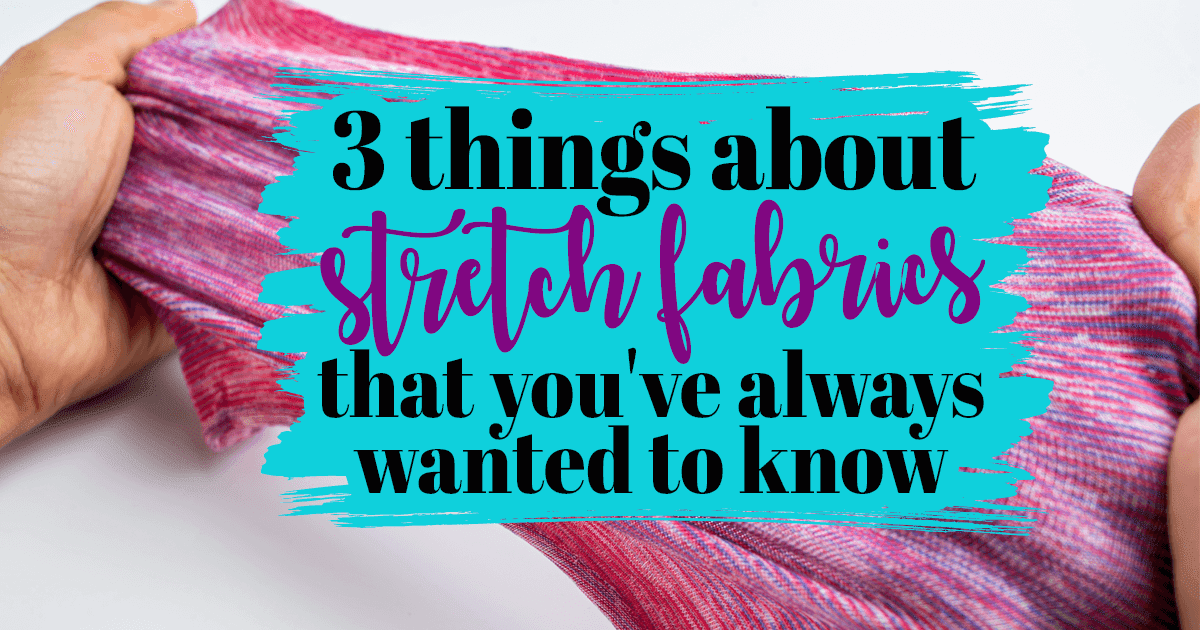2018

Our experts have provided top tips for working with stretch fabrics!
I want to add a neckband to my handmade jersey t-shirt but I don't know how! Can you help me?

Alison Greer says: To start, measure the neckline and cut a rectangle across the stretch of the fabric, 5cm deep by 80% of the
neckline length. Sew the short ends of the band, right sides together, and press the seam open. Iron the
band in half lengthwise, right side facing out.
Next, find the neckband and neckline quarter points starting with the centre front and centre
back. With the neckband seam at the centre back, pin each of the neckband points to the right side of the
corresponding neckline ones, keeping all three raw edges aligned. Attach the neckband to the top using an
overlocker, and remember to stretch it between the pins as you sew. Press the neckband seam allowance
towards the t-shirt.
Finally, to give your top a professional finish, topstitch around the neckline close to the seam
using a stretch stitch, then sew through the seam allowance to help it lie flat, and trim it close to the
topstitching.
There are so many types of jersey, and it feels almost impossible to know which ones are appropriate for my projects! What fabric do you recommend for sewing a pencil skirt?

Lisa Comfort says: Just like woven fabrics, there are so many variations of knits! Some, such as viscose, are lightweight and
stretchy, whereas others, like ponte di roma, are heavy and sturdy. The easiest way to tell what material
will work for a project is to look at your existing garments and identify what clothes are made from which
knits; t-shirts tend to be created from lightweight cotton, while dresses are usually crafted in something
heavier.
For your pencil skirt, ponte di roma would be my go-to choice! It's durable and simple-to-sew –
earning its nickname as the 'stable knit'! If you're a beginner, ponte is perfect for you as it behaves like a
woven fabric in that it doesn't stretch too much.
When sewing with any knit, I advise you to use a ballpoint needle as this will prevent the fibres
from being torn as they would be with a regular, universal one. Also, use a zigzag stitch instead of a
standard straight stitch as it allows the seams to stretch alongside the fabric when you wear the garment.
I'm creating a jumper out of cotton jersey and it keeps curling at the edges. How can I prevent this from happening while I cut the fabric? And will it curl on the finished garment?

[Corrected text from the December 2018 issue of Sew] Claire Mason says: Knit fabrics curl towards the face of the material to indicate which side is the ‘right side’. The amount of curl varies from one jersey to another. While it's annoying when sewing and cutting, curling is useful to help identify which side is the face if it is not obvious from the appearance. If you're plagued by the curl and it's problematic when cutting, spraying starch will help alleviate this short term. Most supermarkets stock it in the cleaning products section and it's relatively inexpensive! The good news is, the curl won't have any impact on your final garment once sewn unless you're leaving the hem unfinished.
When it comes to cutting out, using a rotary cutter and a mat is far easier than using scissors. They're especially good for cutting fine wovens and knit fabrics. Also, use weights rather than pins to hold the pattern in place, as pins can damage the structure of knit fabrics; a popular alternative to pinning is using clips when sewing. Clips are particularly good for holding down a curling edge while you run it through the machine.
New this week
.jpg)
Quick Quilting & Patchwork Patterns and Inspiration
9 Apr 2025
[includes sponsored content] From small pieced projects to statement throws, these patterns and products…

Easy Ways To Get Kids Sewing!
11 Mar 2025
[contains sponsored content] Share your love of sewing with a young one and give…

Creative Book Awards 2025 Shortlist Unveiled!
17 Jan 2025
Welcome to the Creative Book Awards 2025! Since launching in 2021, these awards…
